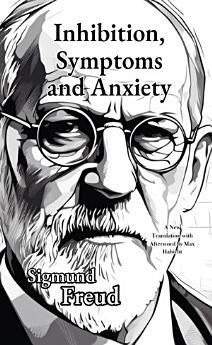Inhibition, Symptoms and Anxiety
May 2024 · The Collected Complete Works of Sigmund Freud Aklat 19 · Continental Press
E-book
110
Mga Page
family_home
Kwalipikado
info
reportHindi na-verify ang mga rating at review Matuto Pa
Tungkol sa ebook na ito
Inhibition, Symptoms and Anxiety (1926) is one of Sigmund Freud’s most significant later works, marking a pivotal shift in his theoretical framework and offering a revised understanding of anxiety, its origins, and its role in psychological functioning. In this groundbreaking text, Freud revisits and revises some of his earlier ideas, particularly those outlined in his earlier work The Interpretation of Dreams and his topographic model of the mind. Here, he introduces a new perspective on anxiety, moving away from his earlier view of anxiety as repressed libido and instead framing it as a response to perceived threats or dangers. Freud begins by distinguishing between three key concepts: inhibition, symptoms, and anxiety. He defines inhibition as a restriction or limitation of normal functioning, often stemming from unconscious conflicts. Symptoms, on the other hand, are manifestations of these conflicts, serving as compromise formations between repressed desires and the demands of reality. Anxiety, in Freud’s revised view, is not merely a byproduct of repression but a central mechanism in the psyche’s response to danger. One of the most important contributions of this work is Freud’s reconceptualization of anxiety as a signal function of the ego. He argues that anxiety arises when the ego perceives a threat, whether from external dangers or internal impulses that could lead to conflict or punishment. This "signal anxiety" serves as a warning, prompting the ego to take defensive measures to avoid or mitigate the perceived danger. This theory represents a significant departure from Freud’s earlier view of anxiety as the direct result of repressed libido, offering a more nuanced and dynamic understanding of its role in mental life.
Tungkol sa may-akda
Sigmund Freud (1856-1939) was an Austrian neurologist and the founder of psychoanalysis, a groundbreaking approach to understanding the human psyche. Freud introduced concepts such as the unconscious mind, repression, and the tripartite structure of the psyche, which includes the id, ego, and superego. His work, including seminal texts like The Interpretation of Dreams and Beyond the Pleasure Principle, emphasized the role of unconscious drives and childhood experiences in shaping behavior and personality. Freuds theories on sexuality, defense mechanisms, and dream analysis challenged societal norms and profoundly altered the field of psychology, influencing literature, art, and philosophy. Though controversial, his contributions laid the foundation for modern psychotherapy and continue to spark debates and inspire new approaches to understanding human behavior and mental processes.
I-rate ang e-book na ito
Ipalaam sa amin ang iyong opinyon.
Impormasyon sa pagbabasa
Mga smartphone at tablet
I-install ang Google Play Books app para sa Android at iPad/iPhone. Awtomatiko itong nagsi-sync sa account mo at nagbibigay-daan sa iyong magbasa online o offline nasaan ka man.
Mga laptop at computer
Maaari kang makinig sa mga audiobook na binili sa Google Play gamit ang web browser ng iyong computer.
Mga eReader at iba pang mga device
Para magbasa tungkol sa mga e-ink device gaya ng mga Kobo eReader, kakailanganin mong mag-download ng file at ilipat ito sa iyong device. Sundin ang mga detalyadong tagubilin sa Help Center para mailipat ang mga file sa mga sinusuportahang eReader.











